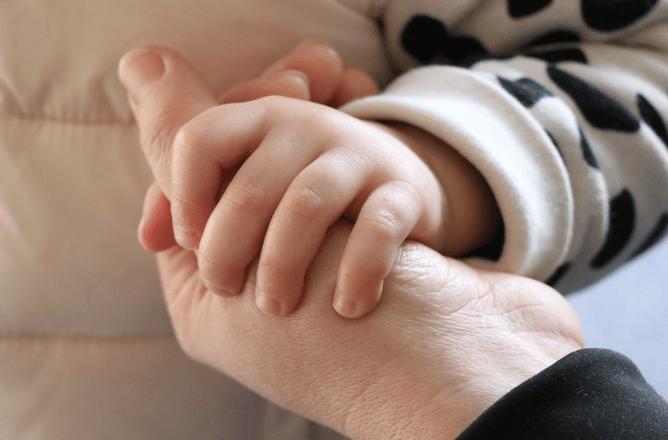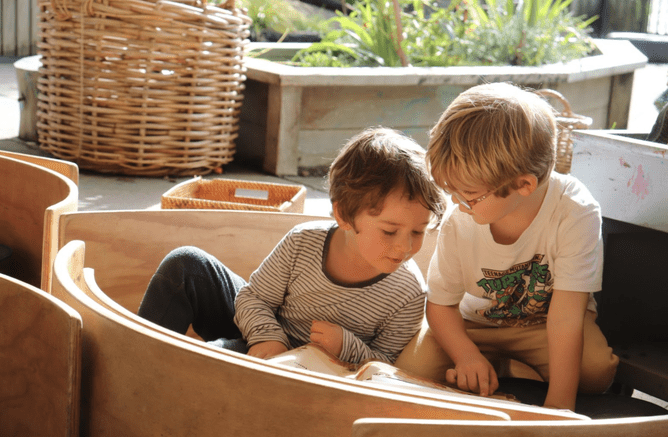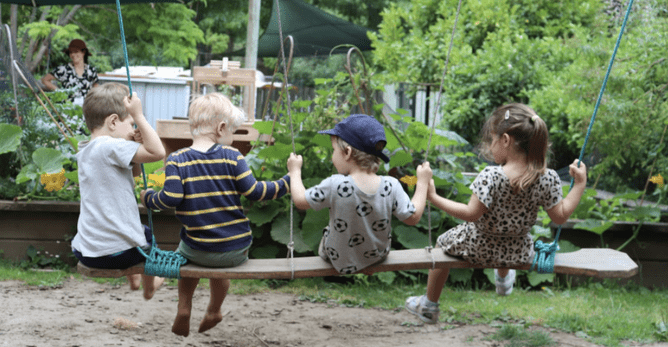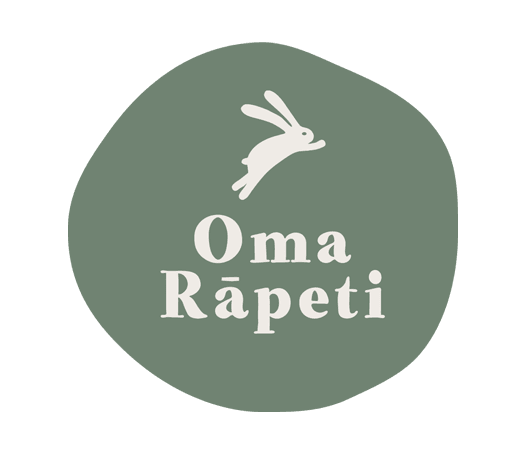You might think because we run a cool little centre in Auckland Central that, in our opinion, provides the best possible care out there and therefore we would be bias towards children being in ECE centres. In actual fact, at the base of everything is our philosophy and we truly believe that each child should be seen as an individual... some children suit a centre environment and some suit homebased care. We’ve covered the basics in this article, so you can make the right choice for you and your child.
If you’re considering enrolling your child with an ECE provider, you may be feeling just a tad overwhelmed with all the choices available.
There’s a multitude of options when it comes to care and education, so it’s easy to feel a little confused and unsure where to begin. It can also be an emotional and difficult process (leaving your little one in the hands of others!), and you need to feel assured your child is in the best, most loving hands possible.
We find it’s helpful to realise there’s no ‘one size fits all’ solution when choosing a childcare provider. If you’re wondering whether home-based or centre-based care is going to be the right fit for your whānau, we’ve covered the basics in this article to help you gain a better understanding of the two.
Start with your whānau values
Take time to consider what is important, and what you value, as a family.
You may have specific cultural requirements to take into consideration, or personal rituals and traditions that are meaningful for you and your child. If your tamariki are going to be spending long amounts of time in the care of others, you’ll want to be assured these values will be respected and adhered to as much as possible. Seek educators who understand and align with your priorities as a family - every learning environment is different.
Consideration for the individual needs of your child is important too - for example, you might have an active go-getter, or a reserved and quiet observer. Your child may also have additional learning requirements, so it’s important to check the learning environment can cater to these. A confident, social and busy child may thrive in a group environment, while a shy and introverted child may feel more themselves in a smaller, more intimate setting.
Consider your care requirements
When choosing an ECE provider, you’ll need to think about what kind of hours of care you’ll require. It’s common for centres to have longer operating hours, while a home-based carer may have more flexibility if you’re looking for casual hours, or your days need to change regularly.
These options differ in all environments, so remember to find out when you call or visit your educator.
Think about what will work best for you - do you need meals and nappies provided? Can the setting cater to your dietary needs, or your child’s toileting requirements? Every family has different needs and expectations, and most educators are accommodating - be sure to communicate what you’re looking for when you visit.
Spot the difference
The most obvious difference between centres and homebased care is group size, and adult:child ratios.
Homebased educators work by themselves, which means a small number of children at any given time and only the one educator available. Centres work with a larger team, which means plenty of team members about as required. At Oma Rāpeti we think it's really crucial to have a main caregiving system, which you can read about here. This means even in a larger team (with plenty of back up and people about) your child will develop special, strong and secure relationships with their own care team. To us it is all about the relationship. Making sure your child feels safe, secure and happy before being comfortable and heading off to explore.
The regulatory bits and pieces...
All licensed ECE providers are regulated by the Ministry of Education (centres, kindergartens and homebased services), so in all cases you can feel assured your child is well cared for.
Homebased childcare providers are not (yet) required to have degrees in teaching (though many do), however this is slowly changing under recent legislation. Currently each educator is support by a qualified coordinator and provided with regular training.
Centres are required to have a minimum of 80% qualified teachers. Here are Oma Rāpeti our qualified hours sit at 98% (average taken from June - Sept 2020.) Make no mistake, there are bountiful incredible teachers who aren’t qualified - but if this is an important value of yours, it’s worth considering.
Don't forget as well to ask centres how many of their team are first aid qualified - here at Oma Rāpeti ELC it is 100% because we think things like that are really important.
As we mentioned earlier, neither of these options are ‘better’ than the other, it all comes down to what works for your child. Where will they feel most comfortable?
What about the curriculum?
Early Childhood Education in Aotearoa is underpinned by our national learning curriculum, Te Whāriki.
This means that regardless of teaching philosophy or learning environment, educators all have the same underlying goals when it comes to planning and assessment for your child’s learning.
Te Whāriki is a beautiful document which has received praise across the globe for the way we, as NZ educators, view our children and the extent to which we allow them to lead their learning at their pace.
You’ll find some centres operate with what’s known as a ‘main caregiver’ system (like here at Oma Rapeti ELC), where tamariki build secure attachment relationships with a designated kaiako - much like in a homebased environment.
Neuroscience expert Nathan Mikaere-Wallis and Miriam McCaleb discuss the impact of caregiver consistency, highlighting the lifelong resilience that’s promoted by secure attachment relationships.
“A secure attachment relationship early in life may promote resilience throughout a lifetime.”
- Nathan Mikaere-Wallis & Miriam McCaleb
Of course, one of the differences between all ECE environments is the individual philosophy of that service.
Each centre, or homebased educator you visit, will have developed their own unique philosophy that frames their approach to education - considering things like the primary caregiving approach mentioned above, among others.
Centre philosophies are often displayed in entranceways and should be readily available on request in any environment. Any of the teaching team should be able to discuss the underlying philosophy at length and be really passionate about why they work within that philosophy. You can read more about ours here or here (see, we love talking about it!)
A teaching philosophy will summarise which learning theories these educators align themselves with, how they view the children in their care and where they place their values.
Think back to the values of your whānau, and the needs of your child, and look for a philosophy that aligns with what is most important to you.
Planning a visit
The best way for you to get a true feel of an environment is to simply visit! Shortlist a few homebased educators and a few centres you feel could work for you, and go in and introduce yourself and your child.
Make sure you check in with your homebased carer to find a suitable visiting time and the same goes for a centre. Sometimes people worry that within a centre space you might not get an authentic vibe of the place if you prebook a visit. Certainly at Oma Rāpeti ELC it is authentic regardless of when you visit - we work with children, the most authentic people out!
So what are you looking for on a visit?
Educator and ECE leader Kimberley Crisp talks about the benefits of a ‘homely feel’ in a learning environment - and this is not restricted to homebased care.
There are loads of lovely centres across the country with smaller group numbers, dedicated kaiako and a cosy, homely feel - like Oma Rāpeti.
Check out our philosophy, it’s beautiful, and we’re proud of it.
“We pride ourselves on creating a "home away from home" environment at Oma Rāpeti, where children can engage in self-chosen and self-initiated play.”
The Ministry of Education have put together this handy guide on what to look for in terms of quality care.
Here’s a quick summary -
Think about your care requirements - hours, food, sleep, additional needs
Consider your child’s needs, passions and personality - do they need extra support teachers, a challenging playground, or a cosy and low-key setting?
Read through the philosophies - make sure the provider’s values align with yours.
Visit, and get a feel for where your child seems comfortable.
Do what’s right for you.
Ultimately, the decision is yours - you know your family, and your child, better than anyone.
Your values and individual needs should take priority, and it’s important to realise that there are differences in every environment. Every homebased childcare will be different, just as no two centres are the same.
Take some time to consider your own philosophy, and seek a childcare option that aligns with what matters to you.
If you’ve found this blog helpful, you can read more about what you should ask when looking for an ECE centre here, and further explore the difference between a kindergarten, an ECE centre and homebased provider here.





